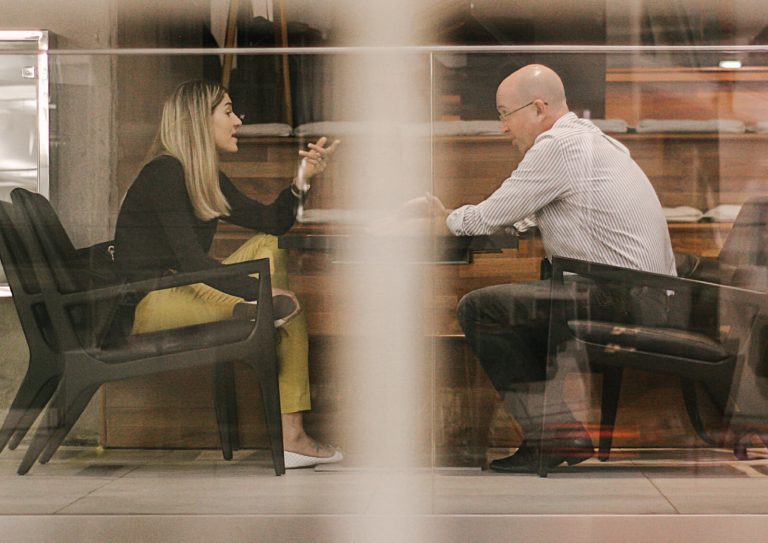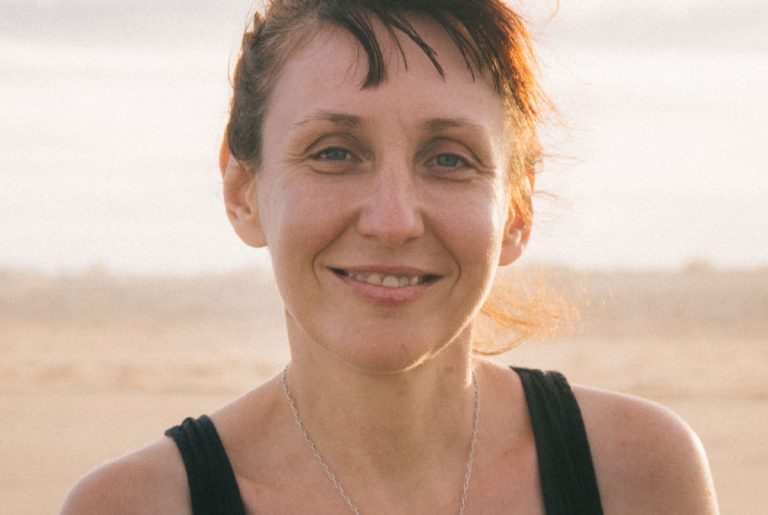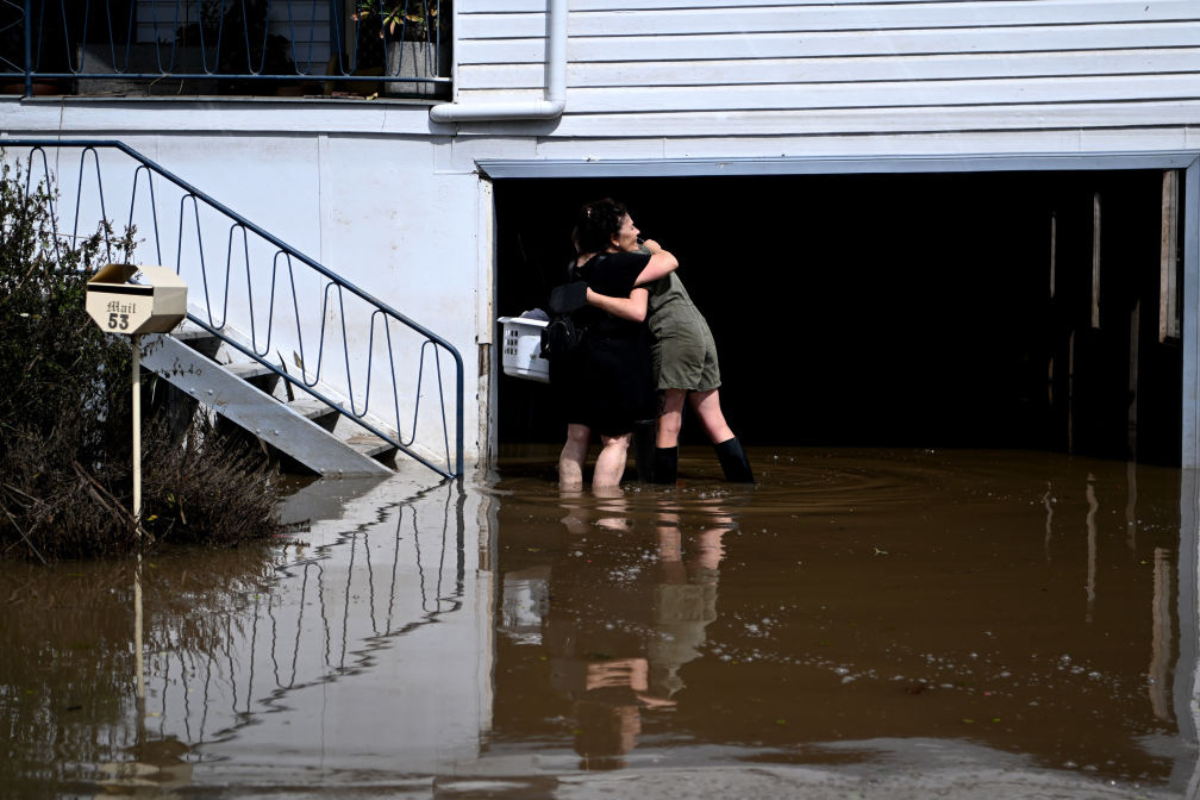In recent years, a huge number of Australians have experienced natural disasters, including floods, bushfires, droughts and heatwaves. No one is immune; from rural Australia to metropolitan areas, our country often sees the very worst of Mother Nature. Many survivors of these disasters have also been struck several times and have lived through major events back-to-back.
And while Australia has always had natural disasters, under climate change projections, extreme weather events are expected to increase in frequency and intensity – and we’re still learning the full extent of their impact on individuals and communities.
According to a Climate Council survey, 80% of Australians have experienced some form of disaster in the last several years. Changing infrastructure and claiming insurance are usually the first things people do to rebuild, but what about our mental health? Tangible infrastructure can often be rebuilt, but it is the social and emotional impacts that can last a lifetime.
In this article, we’ll outline how natural disasters impact our mental health and what to do when your – or a loved one’s – mental health has been impacted by disasters.
Natural disasters and your mental health
The impact of extreme weather events is immeasurable. People not only lose possessions, homes or businesses, but also their way of life.
A Deloitte Access Economics report found that the long-term impacts on people’s mental health and wellbeing far outweigh the costs of replacing personal assets. The repercussions are usually complicated, because they’re difficult to detect or understand. It’s possible and normal to feel the effects long after the disaster occurred, too. A Melbourne University report found 21 per cent of people affected by the ‘Black Saturday’ Victorian bushfires in 2009 were still experiencing PTSD and depression more than 10 years later. Long-term studies after the ‘Ash Wednesday’ bushfires in South Australia also showed that the mental health of children of affected families were still being impacted 20 years after the fires.
It’s important to understand we all experience events differently, and it’s normal for people to experience a range of thoughts, feelings and behaviours after a stressful and challenging event. These responses can also vary in intensity and frequency, which may be confusing and frightening. These reactions are not always a sign of mental health concern, but rather an indicator or clue to understand what we’re experiencing and how best to address it.
How to take after yourself in simple steps
Dealing with the emotional and psychological impacts of a natural disaster can feel overwhelming and daunting. While you process the trauma of the event and if your day-to-day life has been disrupted, you may forget to look after yourself.
Know that it’s normal to feel a range of emotions sometimes immediately, during or even much later after the event. There are some simple things to remember to help cope during this time, including:
- Identify what you can control
- Have a routine and stick to it
- Ask yourself: ‘what am I not doing that I used to?’
- Connect with others and get help when you need it
- Take your time – don’t rush the recovery
- Look after yourself by managing the stress.
For more practical tips and advice, we spoke with community leaders from disaster-impacted areas in Regional NSW on building resilience.
Common vs. beyond common reactions: What to look out for
In the aftermath of a disaster, many people will experience intense reactions. Severe psychological distress is extremely common, and for most people, these reactions usually decline over time. Research following catastrophic natural disasters consistently shows most people adjust and recover gradually and naturally, without additional or professional intervention.
Some people, however, will experience a steep decline in their mental health and wellbeing in the months or years after the initial event. This doesn’t mean there’s anything wrong with them; everyone is different, and each natural disaster brings its own set of impacts.
There are some common reactions to be mindful of after experiencing disaster and trauma – and it’s important to take care of yourself using some of our earlier advice. But there are some other less common, and more concerning, reactions that you should be on the lookout for – both in yourself in others. Understanding them is useful for putting reactions into context and gauging whether some professional support could help.
Common short-term reactions following natural disasters:
- Feeling overwhelmed, numb or detached
- Inability to focus or plan ahead
- Constant tearfulness or feelings of anger
- Intrusive memories or bad dreams related to the event
- Replaying the event or constant questioning to prepare for another event
Consider seeking support if you’re experiencing:
- Thoughts of self-harm or suicide
- Loss of hope or interest in the future
- Overwhelming fear from no obvious source
- Avoiding things that remind you of the event, to the point it affects daily tasks
- Excessive guilt and blame about what happened
Natural disasters and communities
Rebuilding your life and home after a natural disaster is an exercise in resilience – but you don’t have to do it alone. Remember that your relatives, neighbours and colleagues may be going through something similar, and you can work through these experiences together.
Communities can suffer from major infrastructure losses – and sometimes, tragically, the loss of lives. In disasters, people may also get separated, even for a short while. Injuries or threat to life and deaths can be extremely traumatising and compound the impacts on mental health.
While formal assistance and social support is usually available for communities coping with natural disasters, there’s not always information and resources available for groups to tackle the social impacts. Catastrophic disasters can fracture or strain social networks and affect our individual social relationships.
A University of Pennsylvania article notes there can be “two very different, at times conflicting” impacts from the aftermath of a disaster. There’s the initial sense of solidarity and gratitude, with an outpouring of immense mutual help, which is then followed by a sense of loss in the quality of interpersonal and community relationships.
Bouncing back as a community
There are plenty of reasons to support those people in your community who may be struggling to navigate the aftermath of disasters.
- Looking out for others can help people build a trusted network to navigate the often-bumpy road of resilience
- Shared healthy and regular social interactions can restore some sense of community and reduce feelings of loneliness
- The event was a shared experience, so talking to others who went through the same thing can help alleviate some of the grief.
There are some more vulnerable groups in our community who we should particularly look out for when we can, including the elderly, people from culturally and linguistically diverse communities and those with pre-existing mental health issues and medical conditions.
Aboriginal and Torres Strait Islander people with close ancestral or emotional ties to the land are also likely to be disproportionately affected by environmental change and extreme weather events.
Australian men can also sometimes be left out of the conversation when it comes to mental health. The Australian Institute of Family Studies highlights the adverse mental health impacts and the barriers men face when trying to access mental health services following natural disasters.
Many people may also be reluctant to seek help because of the associated stigma and shame, but there is overwhelming to show evidence that social support provides emotional benefits and can also act as a buffer against psychological distress.
It’s crucial to look after yourself while recovering from a natural disaster, but it’s also important to check in on others around you. Everyone has different reactions, often at different times, meaning people might need help at times when you may not think they do, and vice versa.
Relationships Australia NSW runs disaster resilience programs, focused on helping affected communities get through natural disasters together. Find more information on how you can develop skills to build resilience and support people during catastrophic events.
Related Services & Workshops

Accidental Counsellor
Accidental Counsellor is a workshop to assist people who aren’t trained counsellors, but often find themselves in a counselling role “by accident”. You’ll learn how to support clients, friends, family, colleagues, and strangers in distress or experiencing a crisis.

Counselling.Individuals.Older People.LGBTQIA+
Individual Counselling
Life can be full of ups and downs. While we may be able to overcome most challenges by ourselves, sometimes we need some extra support. Individual Counselling offers a supportive environment to identify and manage problems and concerns.






